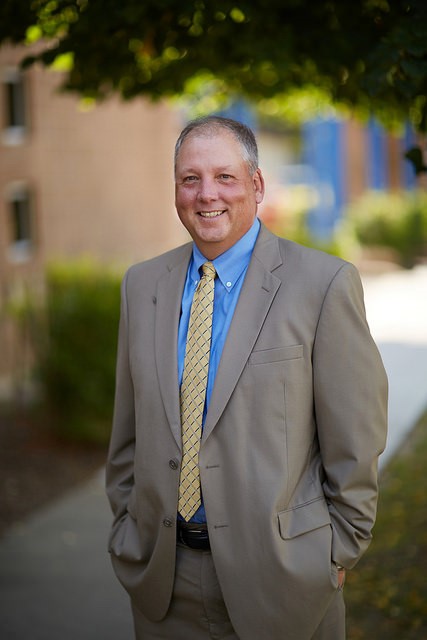
A solution to a problem Every three months we host an orientation for new KPEP employees. At the meetings, I provide a history of the organization and talk a little about our philosophy and mission. I also talk about opportunities for growth.
When I talk to new employees about the past, present or future of KPEP, I describe us as a “solution to a problem” and not a “solution in search of a problem.” It was fitting then that Governor Rick Snyder chose KPEP and the new Walnut & Park Café as the location to sign 18 criminal justice reform bills into law… all solutions to a problem.
What problems are we trying to solve?
Michigan has 41,000 people in prison and 64,000 on probation and parole. Our current corrections system is expensive, and more people than we like return to prison.
KPEP and community corrections operations like ours are on the front lines when it comes to solving these problems. We provide a cost effective alternative on the front end to try to keep people out of prison. We do the same for people getting out of prison or for those on parole. What we offer is not a one size fits all program, but instead consists of many evidence-based approaches designed to meet the needs of the participants and the communities we serve.
Why Walnut & Park?
When we talk about offender success, it often starts with employment. Vocational training has been an emphasis with both the legislature and the Department of Corrections in recent years. In fact, an MDOC press release issued the day before the bill signing largely credited recent MDOC education and job training initiatives for a reduction in Michigan’s recidivism rate to 29.8 percent – placing Michigan among the top 10 states in the nation with the lowest rates of recidivism. The Vocational Village in Ionia has been key in this effort, and a second Vocational Village in Jackson was announced that day.
KPEP’s vocational programs serve the same purpose in the communities we serve. The Walnut & Park Café provides participants a real-world paid job experience that will help them build a resume and will open doors to other opportunities.
Building on a model program
It was a great honor to host the signing ceremony at our building. I was also proud that we played an integral part on one of the bills signed that day.
Senate Bill 16 or Public Act 1 of 2017, the parole sanctions certainty bill, was borne out of discussions we had with Senator John Proos and the subsequent successful pilot program we have operated for the last 18 months.
The program combines random drug testing with immediate short-term sanctions for either use or failure to show. Subsequent violations will result in a treatment episode with the type and length of stay determined by an objective assessment.
This evidenced-based approach has been tremendously successful. We have seen the initial positive drug test rate during the first few months of the program drop from between 12 and 18 percent down to just under 5 percent for the last 12 months. In addition, several participants have asked to stay in the program even though they have successfully completed it. They see the accountability of the random drug testing as a necessary part of their recovery.
Based on this success, we have expanded the program from four counties to nine, and we hope to continue to add locations as we build on this successful model.
Working with the Governor, the Legislature and the Department of Corrections we continue to provide innovative alternatives to prison for those entering the system and transitional programs for those returning to their community from incarceration.
